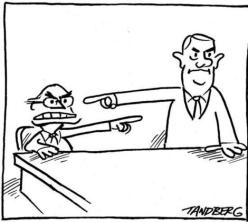
What is it about the holidays? They stir up all kinds of thoughts and feelings, tastier than a big bowl of egg nog and filled with equal parts bite and sweetness. It's not an easy time, one so many of us both embrace and dread.
If we pay attention, many of the feelings that move through us in our lives contain not only the 'story'--what we experience and talk about as the narrative of what's happening--but also a physical component. Every feeling we have can be located somewhere in the body, listened to, and moved through.
In fact, it can be freeing to realize that--although we may have infused them with drama, judgment and interpretation--our feelings are actually very simple when we pinpoint them in our bodies. Grief, for example, can show up as a heavy feeling in the heart or shoulders; a sense of our breath being constricted or our body weighed down. Anger can have a kind of heat and energy to it, a change of breath, a sense of restlessness in the limbs.
As we get curious about and explore our feelings through our bodies without judgment, something interesting begins to happen: they move through us. Like a child that has a temper tantrum and then is done, our feelings--when attended to in this most basic way--can work their way through us more easily when we allow ourselves to sit with them without judgment or story.
As feelings arise this holiday, I encourage you to get curious about where they live in your body and see if you can try also exploring them in this simple way. What do you notice about how each feeling affects your breathing, energy or sensations in the body? Let go of what you think happened or what you should or shouldn't be feeling and just notice what you experience right now in your physical self. Do things change as you bring your awareness and curiosity into this most basic and primitive place? The results may surprise you.
For those of you who find yourselves moving through difficult emotions this holiday, I also encourage you to listen to a radio series created by a colleague, Andrea Hylen--and in particular our interview on todays' show about how to work with grief in the body. We talked a lot about this way of working with emotions, learning to listen to the body's wisdom in order to let grief move through us, as well as speak to us in whatever way we most need to hear. You can find our show at the link:
And I encourage you to listen to the whole series, many episodes of which will be available 'on demand.' Andrea--who has experienced the loss of her husband, son and brother and who knows a thing or two about working through and managing grief--answered a calling to create this series for listeners during the holidays. Her hope is that it will offer a helping hand and a feeling of support at a time that often causes us to reflect more deeply on loss and change.
I wish you all a delightful and healing holiday--and plan on writing my next blog on how to stay connected to the best vision for your body in 2011. Stay tuned!
All my love,
Anna











